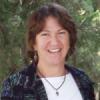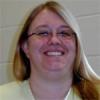Project Team

Tanya Furman
Tanya Furman grew up outside of Cleveland, Ohio, and graduated from Princeton University in 1982 with a bachelor’s degree in Civil and Geological Engineering. After a Fulbright fellowship year in Iceland, she carried out her doctoral research on the geochemistry of Icelandic volcanoes while at the Massachusetts Institute of Technology. Her first academic position at the University of Virginia was as Founding Director of a branch of the Virginia Museum of Natural History, where she conducted outreach activities and developed public displays. She came to Penn State in 1998 in the department of Geosciences, where she served as Undergraduate Program Head and as Associate Director for the Alliance for Education, Science, Engineering and Development in Africa. She currently divides her time between her faculty role as Professor of Geosciences and as Associate Vice President and Associate Dean for Undergraduate Education. Tanya’s research focuses on the geochemical composition of volcanic materials from areas of dynamic tectonic activity, with study sites in Turkey and throughout the East African Rift. Her administrative portfolio includes baccalaureate program assessment and improving STEM teaching and learning across Penn State's 20 undergraduate campuses. Tanya is the lead investigator on the Earth and Space Science Partnership, a $9 million NSF-funded project to improve the status, teaching and learning of Earth and Space Science in both rural and urban underserved public school districts. As part of this work, she participates in research on student learning and conceptualizations of plate tectonics from elementary school through college. In 2005, Tanya received the Presidential Award for Excellence in Science, Mathematics and Engineering Mentoring.

Scott McDonald
Dr. Scott McDonald is an Associate Professor of Science Education at The Pennsylvania State University. He received his undergraduate degree in Physics with a focus on Astronomy and Astrophysics. He was high school Physics teacher for six years before returning for his Ph.D. Science Education and Learning Technologies at the University of Michigan. His research focuses on understanding the difference between expert and novice science teachers in terms of their ability to notice and interpret events in classroom practice.

Chris Palma
Chris is a Senior Lecturer in Astronomy & Astrophysics at Penn State's University Park campus. He earned a BS with dual majors in Astronomy & Astrophysics and Physics from Penn State in 1994, and went on to earn a PhD in Astronomy from the University of Virginia in 2001.
Chris specializes in presenting the science of astronomy to audiences in a number of informal settings. He has given presentations to audiences as large as 500 as part of the "Friedman Lectures in Astronomy" at Penn State, spoken at star parties at Cherry Springs State Park in northern PA, and visited dozens of K-12 classrooms. Chris has co-taught an Elderhostel on modern astronomy held at Penn State and has also taught courses for senior citizens through the Osher Institute for Lifelong Learning in State College. One of his prime interests is in teaching science teachers, and Chris organizes and teaches two annual workshops for middle- and high-school teachers on topics which have included stars, planets, telescopes, galaxies, cosmology, and black holes. He has designed and directed several astronomy themed summer science camps for children entering grades K - 8, and has presented hands-on astronomy activities to K-12 students at informal outreach events at Penn State, such as "AstroFest" and "Exploration Day". He manages Penn State's small on campus planetarium, which presents planetarium shows and related hands-on activities to more than 2,000 K-12 students annually.
Currently, Chris is teaching introductory astronomy courses to Penn State undergraduates and to in-service science teachers enrolled in an on-line Masters of Education in Earth & Space Science program.

Laura Guertin
Dr. Laura Guertin is a Professor of Earth Science at Penn State Brandywine in Media, PA. She received her BA in geology from Bucknell University and her PhD in marine geology & geophysics from the University of Miami’s Rosenstiel School of Marine & Atmospheric Science. Her primary research focus is the effective integration of innovative technologies to improve student learning in introductory-level geoscience courses. She has been awarded the Penn State – Commonwealth College Award for Teaching Excellence, Penn State’s George W. Atherton Award for Excellence in Teaching, and in 2009 was recognized at the national level with the Biggs Earth Science Teaching Award, an award that places her in the Geology Hall of Fame. She is the past program coordinator for her campus’ Jane E. Cooper Campus and Schreyer Honors Programs and campus coordinator for the Undergraduate Research Committee and intercollege minor in environmental inquiry. She is the past chair of the Geoscience Division of the Council on Undergraduate Research and a former councilor-at-large with the National Association of Geoscience Teachers. In 2015, Laura was selected as one of INSIGHT Into Diversity Magazine's Top 100 Women in STEM.

Theresa Lewis-King
For more than fourteen years I have been a science teacher for the School District of Philadelphia, grades 3-8. However, for the past five years I have exclusively taught middle-level science to students in grades 7and 8 at the Rudolph Blankenburg School in West Philadelphia. I teach an integrated science curriculum that includes physical, biological, earth, and environmental science.
I hold a Master of Integrated Science Education degree from the University of Pennsylvania, completed in December 2008. My degree was a three-year science content program designed specifically for practicing science educators and funded by a grant from the National Science Foundation (NSF). I am a Pennsylvania “highly qualified” educator, and currently hold an Instructional II certificate in Middle-level Science and Math. I am an Adjunct Professor at Rosemont College, Rosemont, PA; where I teach a methods course in Elementary Science to undergraduate pre-service teachers.
I was a contributing writer of the current Philadelphia School District Science Core Curriculum and I have conducted numerous science content professional developments at both the school and district level. I have designed and led workshops for the STC: Rocks and Minerals, Electric Circuits, and Land and Water kits, and the FOSS: Electricity and Magnetism, Environments, and Variables kits. I have also conducted workshops for environmental educations and service learning projects.
I am the mother of three children; two of them are young independent adults. I currently reside in the City of Philadelphia with my teenage son who attends a Philadelphia public school.

Julia Plummer
Julia Plummer spent more than a decade teaching children and adults in planetariums and has extensive experience teaching college-level introductory astronomy. Her research interests focus on how children and adults engage in scientific practices in the domain of astronomy. This includes investigating both formal and informal learning environments, the role of curriculum and professional development in educators¹ beliefs, and the importance of spatial reasoning to the domain. Her research has led to the development of an initial framework for a K-8 observational astronomy learning progression. Julia has also co-authored a middle school astronomy curriculum and collaborated on the development of planetarium programs for children. She serves on the Editorial Board for the Journal of Research in Science Teaching. Julia received a combined Ph.D. in Astronomy & Education from the University of Michigan.
With the ESSP, Julia works with the research team on developing a learning progression that extends her earlier work towards more sophisticated explanations in solar system astronomy.

Susan Lauver
Susan Lauver currently serves as the Project Manager for the Earth and Space Science Partnership. A State College native, Susan earned her bachelor's degree in Infant and Early Childhood Development at Penn State. Prior to her Penn State career, Susan worked as preschool teacher and, later, as director of a regional Early Head Start Program. Since joining Penn State in 2000, her work has centered around serving the needs undergraduate students in the College of Earth and Mineral Sciences. The Earth and Space Science Partnership position represents a change in her career path and she is looking forward to the challenges and adventures inherent in managing the program.

Eric Aitala
Eric Aitala is the webmaster for the Earth and Space Science Partnership. He has a B.S. in Astronomy from Penn State and a Ph. D. in Physics from the University of Mississippi. He has extensive experience in developing web sites and was the webmaster for the University of Mississippi from 1999 to 2005.



